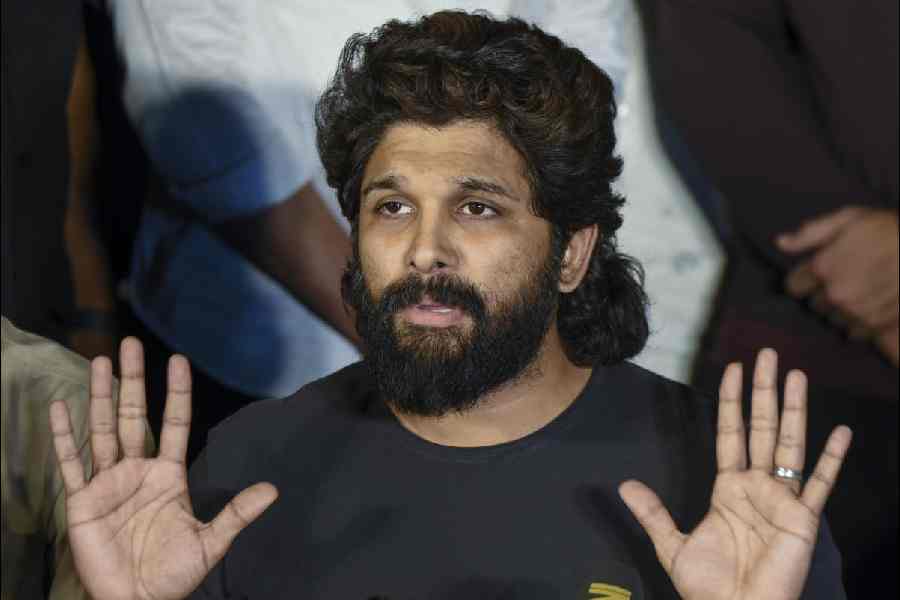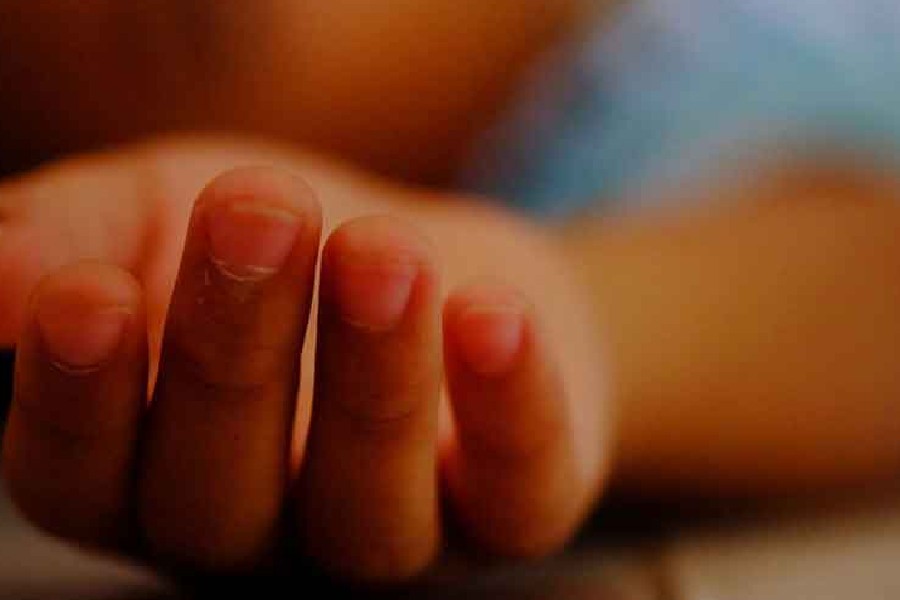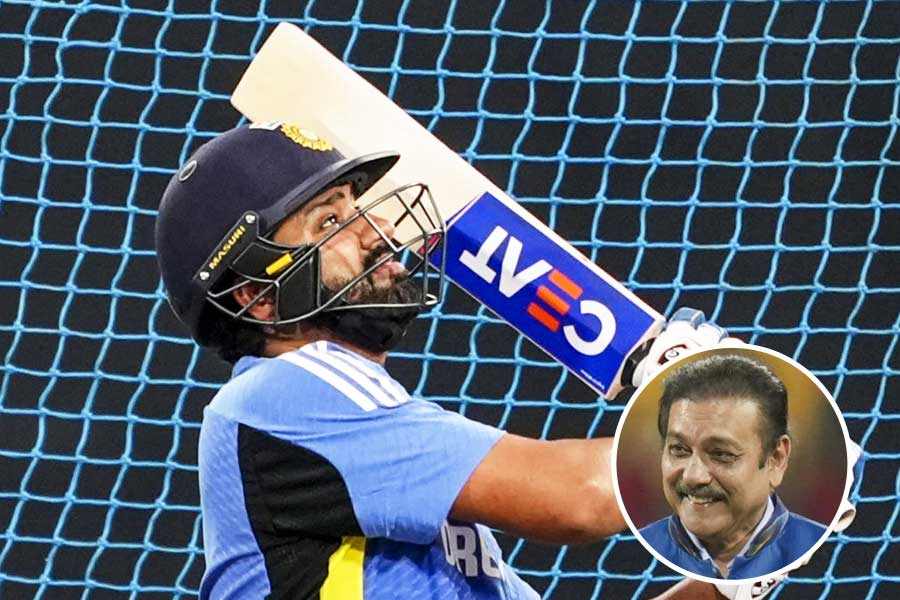Faulty solution
Sir — The city municipal corporation of Ghaziabad recently announced a ban on three breeds of dogs after a series of attacks by pets. The civic body has prohibited the sale and adoption of Pitbulls, Rottweilers and Dogo Argentinos citing safety concerns. Pet owners will have to get a licence as well. But it seems that the authorities have failed to inspect the reasons behind the unruly behaviour of the dogs. While it is true that the banned breeds are known to be fierce, it must be remembered that dogs rarely attack unprovoked. Many pets are starved, beaten and kept in inhumane conditions that lead to aggressive behaviour. Unless the authorities ensure that dogs are properly trained and cared for, the problem will persist through other breeds.
Ananya Chakraborty, Delhi
Time to shine
Sir — The Twenty20 World Cup, which began earlier this week, will be an acid test for the Indian cricket team. The Men in Blue have consistently performed well in bilateral cricket series but have failed to replicate this form in tournaments hosted by the International Cricket Council. India won its last ICC trophy in 2013 under the captaincy of M.S. Dhoni and won only the inaugural edition of the T20 World Cup in 2007. International tournaments can help gauge where a team stands vis-à-vis others. The Indian team has, so far, performed poorly in this regard. It must utilise this opportunity to showcase its capabilities.
Ambar Mallick, Calcutta
Sir — The eighth edition of the T20 World Cup has begun in Australia. The host nation won the last edition and is, undoubtedly, a strong contender for this year’s trophy. But it seems that England and India are fan favourites, followed by Pakistan. Cricket fans around the world are excited to see how the 2022 tournament pans out.
Murtaza Ahmad, Calcutta
Challenge ahead
Sir — The article, “A mixed report card” (Oct 19), by Furqan Qamar provides a glance at the achievements and gaps in Indian higher education. Women constitute 49 per cent of the total enrolment in higher education institutions, but Muslims have only 5.5 per cent representation in spite of being almost 15 per cent of the population. The participation of scheduled castes and scheduled tribes is well below the national average as well. Qamar is right to worry that the privatisation of higher education as envisioned in the National Education Policy will have a detrimental effect. The government must realise that privatisation will only push away marginalised communities from the domain of education.
K. Nehru Patnaik, Visakhapatnam
New leader
Sir — The selection of Roger Binny as the president of the Board of Control for Cricket in India in place of the former skipper of the Indian men’s team, Sourav Ganguly, is disheartening. It is also particularly surprising since the Supreme Court had approved the BCCI’s proposal to amend the Constitution to allow two consecutive terms for the president, secretary and other office bearers, irrespective of their earlier tenure in state associations. Binny is an accomplished sportsman and was part of the Indian squad that won the 1983 World Cup. However, many will agree that his selection for the post of BCCI president is unexpected. Cricket and politics have become entangled in India and, as such, anything is possible. This incident brings to mind the time when Ganguly was unceremoniously dropped from the Indian cricket team. There are certainly hidden parallels.
Debasish Chatterjee, Calcutta
Sir — It is quite evident that Sourav Ganguly’s exit from the BCCI was politically motivated. Ganguly’s relationship with the Union home minister, Amit Shah, has been a matter of speculation since the latter dined at the former’s home in May this year. Many are of the opinion that Ganguly was ousted from the post because of his reluctance to join the Bharatiya Janata Party. Ganguly’s replacement, Roger Binny, is a revered sportsman and administrator. Hopefully, his tenure at the BCCI will be free of drama. But it would be wise to remember that Binny’s home state, Karnataka, is due for polls in May 2023. One wonders if there is a connection between the two. It has been argued that sports and politics should not be mixed but is, unfortunately, not the case in India.
Ranganathan Sivakumar, Chennai
Well deserved
Sir — Nanjiyamma, also known as Nanchamma, a folk-singer from the tribal Irula community in Attappadi, Kerala, recently received the National Award for best female playback singer from the president of India, Droupadi Murmu. Nanjiyamma, who makes a living by farming and rearing cattle, won the award for her soulful rendition of the song, “Kalakkatha sandana meram” (The sandalwood tree in the east has blossomed), for the 2020 Malayalam film, Ayyappanum Koshiyum. She speaks Irula, a Dravidian language that is closely related to Tamil. The 60-year-old Nanjiyamma is an inspiration not only for adivasis but also all communities that have been historically marginalised.
Haridasan Rajan, Kozhikode
Impure food
Sir — Most of us are aware of the importance of a healthy diet. But can we afford it? Nutritionists recommend the inclusion of a variety of vegetables and fruits in our meals but the cost of clean, organic produce is tremendous. Additionally, much of the produce that we consume is grown on contaminated soil as a result of which there is high heavy metal content in food items. This has long-term implications for our health. We must introspect if it is possible for ordinary Indians to maintain a healthy diet.
Saikat Kumar Basu, Calcutta










